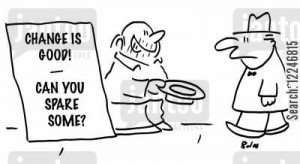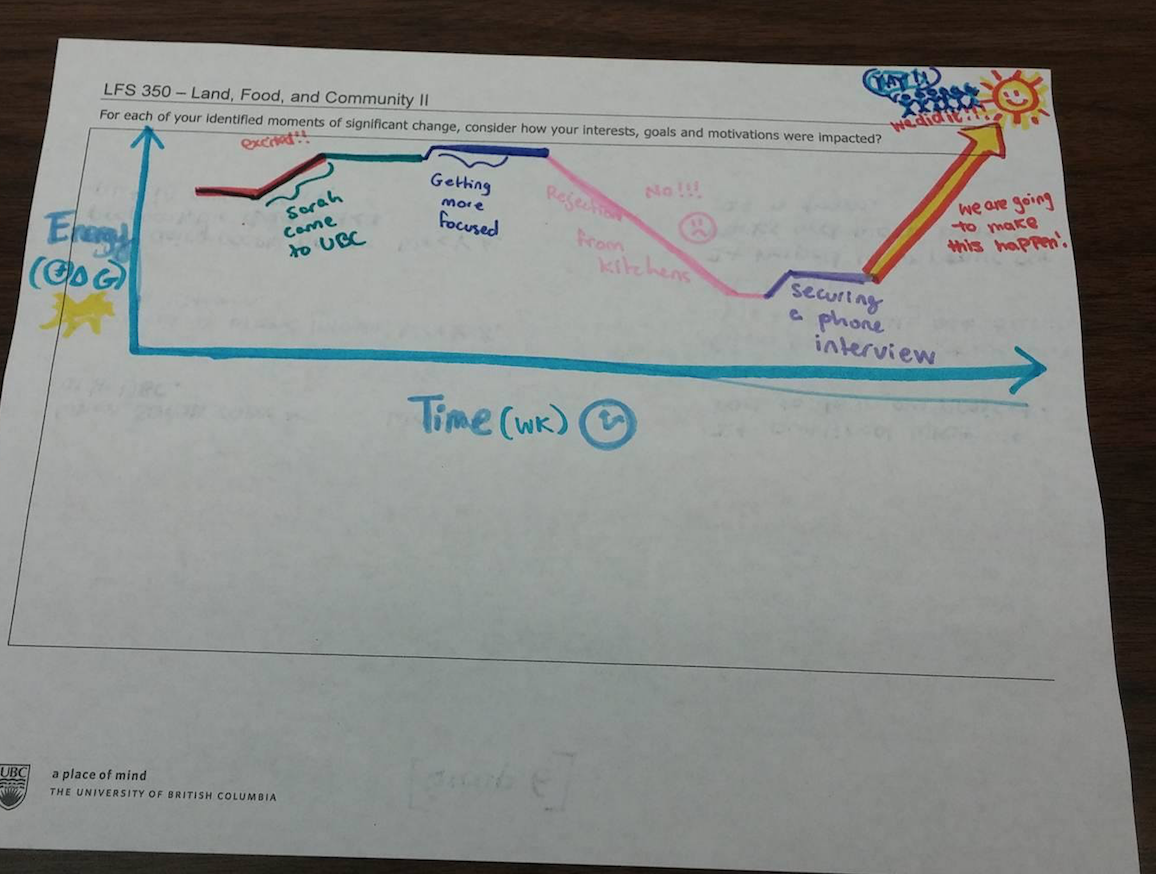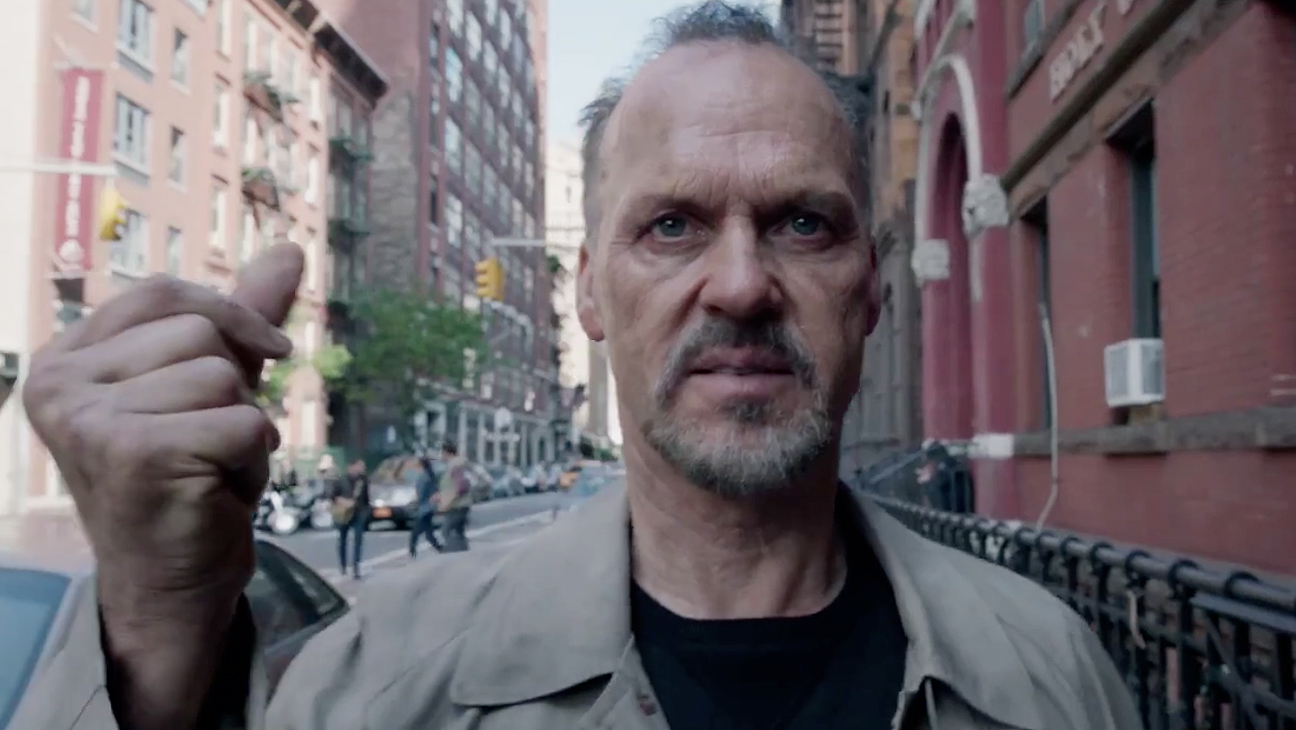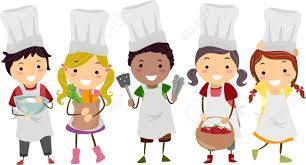Blog 5
Retrieved from https://www.youtube.com/watch?v=jm9ubd3iqnM
Farewell LFS 350!
This will be our last blog post of the term. Even though we had our last class and presentation on Wednesday we’re not quite finished yet. As a group we continue to pull together to finish our final paper and reflect on what we’ve done in this course before diving into our exams. (Final stretch let’s go!)
Executive Summary:
Group 6 from UBC’s LFS 350 class worked in conjunction with a social planner from the City of Vancouver’s Social Policy Department in their mission to create a food system that is economically, socially, and environmentally sustainable by helping to improve publicly accessible kitchens in Vancouver.
This was done by compiling data that we and other groups obtained through phone and in-person interviews, and then creating general recommendations that can be implemented in the kitchens. The community kitchen groups of LFS 350 interviewed kitchen staff from many regions in Greater Vancouver such as Mt. Pleasant, Grandview, Fairview, Arbutus Ridge, Hastings-Sunrise, and Downtown. The questions that we used to obtain our data were designed to determine the productivity and condition of the kitchens. Some examples of the questions used in our surveys were: Who uses the kitchen and how often do they use it? What types of foods are prepared in the kitchen?
After compiling data from all the groups, we used the Asset-Based Community Development (ABCD) method in order to create graphs and compare the kitchens to one another in different categories. The categories were determined based off of our inquiry questions such as: number of people that can be in the kitchen at one time, operation hours, and maintenance needed for the kitchen per week.
Based on this, we determined what adjustments can be made for the kitchens as a whole. Our results show that most of the community kitchens are maintained in good condition, can accommodate ten people or fewer, and are used for community purposes such as communal cooking. However, some kitchens did not have food-related programs for their community members and that many of the kitchens lack the funding to improve their equipment and kitchen space. We also found that community kitchens are currently seeking funding in order to operate more effectively as valuable community hubs. Therefore, we recommend further studies to be done on these kitchens in the future due our survey’s small sample size and the need to extend our baseline data set so that future groups use the data in a meaningful way.
Reflecting on a moment of significance that has occurred in LFS 350 during our group project using Rolfe et al. (2001) reflective model:
Moment of Significance:
What?
Throughout the community-based experiential project, we were continually faced with challenges while searching for community kitchen interviews. We failed to make contact with a number of kitchens in the Mount Pleasant neighborhood, which we were initially assigned along with the two other extended neighborhoods (i.e. Arbutus Ridge and Fairview). As we became mediators between the city planners from the City of Vancouver and the community members, we tried to realize our goal of collecting survey data from six community kitchens. The objective of our project was to analyze the data and recommend future actions to enhance community kitchens. Consequently, the rejection brought down group morale panic ensued. We were not able to collect data from even one kitchen to evaluate the state of community kitchens in the City of Vancouver.
In light of this, instead of repeating points we had from the previous blog, we decided to focus on the significance of accessing data from community kitchens in our last assigned neighborhood, Hasting Sunrise. As we were working towards our goal, we were met with some success as we managed to set up three interviews in total with the community kitchens. This was the high point in our project because we actually developed different approaches in contacting kitchens, aside from making an appointment which was what our social planner had initially suggested. For instance, phone interviews worked very well when we were tackling a community site that was not available for on-site visit. Moreover, conducting a drop-in to the community site did actually show our sincerity in conducting the research. As a result, our group actually became more engaged in the project after we started success with collecting some data because we knew that having innovative ways to contact community kitchens could be a turning point in the bad situation we were facing. We were thankful for the help from our TA and community partners as they gave us practical suggestions during our times of frustration, including mental support that actually lower the tension within our group. Furthermore, we were glad to provide some feedback we received from the community members to the project designer, such as reasons why some places rejected our visit including having it done too frequently.
For our whole team, we thought that both ourselves and the teaching team could grow from this project, in terms of identifying the flaws in this project that could be corrected in the future. We felt mutual happiness between us and the teaching team when we started to collect some useful data, as we all saw the significance of the project was not just obtaining information for improvement of Vancouver’s community centre usage but also the process of working towards the goal. Overall, it was a good experience for our group as it gave us a chance to practice and develop our professional speaking skills through the phone by contacting different community units. In addition to this, we used our team spirit to get through the pit of the project, which proved to be an essential component for a good quality team as we came together to work in unity through good situations or bad. The only limitation with these new approaches discovered in the project was that we could not take photos in the kitchens for our own record because it required further consent from the manager of the community site.
So what?
 Image retrieved from: https://www.peaceproject.com/content/you-cant-solve-problem-thinking-created-problem-albert-einstein-digital-sticker
Image retrieved from: https://www.peaceproject.com/content/you-cant-solve-problem-thinking-created-problem-albert-einstein-digital-sticker
Throughout the course, we learned that things do not always go according to plan. And when things do not go accordingly, it is key not to blame the project but to ask ourselves what we could do and how to find a better way to carry out the plan. Dan Barber’s story of Foie Gras (2011) and creating a new version of cuisine (harvesting ducks/geese in a natural and humane way) for maintaining the Foie gras production gave us the courage and the insight to come up with our own methods from our original means in order to reach out to the community practitioners. Instead of using the script provided in class we decided first to use the drop-in system, second, face to face communication and third, to change the order of the script’s phrases with different wording. For example, we first introduced ourselves as UBC students and gave them the reason why we were here to made it sound less formal. We simply told them we were interested in learning about how the kitchen is used and made sure to tell them that the information is confidential. When they were willing to give us their time for the interview, we explained further on why we are doing this project. Seeing as our procedure went smoothly, we thought that making it less formal made it easier and helped them feel more comfortable when answering survey questions. Also, we thought that using the face to face/on-site arrangement would give us a better chance at securing an interview. Due to having such a small sample size, it is difficult to conclude that our methods gave the better results of finding kitchens, but it is important to see and understand that there were positive outcomes overall by changing the scope of project design in collecting survey.
To achieve scope change and deal with adversity we needed to draw from other sources. In this case, we borrowed some knowledge from the field of psychology. We used the psychological principles of similarity and proxemics to an effect without even realizing it! Similarity was key when we altered the tone and content of the script, as it allowed us to connect with the managers of the community kitchens on a more personal level. We presented ourselves as students eager to learn more about the community assets in our own city, rather than auditors from The Scary City of Vancouver coming to expose their flaws, the very essence of asset-based community development. Proxemics, which refers to the physical proximity between two communicators, was a major factor in getting interviews since it seemed to be easier to connect with community kitchens if we were physically present. It’s difficult to disregard someone who makes the effort to be there, a strategy we used to show our willingness to engage with the kitchens. By using a psychological lens to appraise our experiences, we now understand that the way we approach kitchens matters too. It may not be enough to simply reiterate a script that does not fully engage community partners.
In hindsight we could have opted for more communication with Sarah, our community partner, to give and receive feedback on our project. The LFS 350 teaching team was helpful when suggesting ways to proceed, but constant conversation with Sarah would have provided an extra perspective from the government, which is encouraged by the transdiciplinary approach. The transdiciplinary approach advocates for multiple levels of expertise when tackling a systems issue, giving rise to ideas and connections that would be otherwise lost. In this specific situation, collaborators from the City of Vancouver may have been able to share information on the communities we visited, helping to explain the rejections and consequently improve our methods. Despite the setbacks, we gained a new understanding of the community kitchens in our designated areas. For example, we can now ask kitchens why they may or may not want to engage in community food security initiatives. Do kitchens fear receiving profit will diminish their overarching mandate? Are academics approaching kitchens in a way that is off-putting or intimidating? Is there a way to integrate business and social models to supplement funding for the specific kitchens we visited? All these questions attempt to answer the broader issue of which method is the most feasible way to engage community kitchens in order to increase community assets.
Image retrieved from http://www.jantoo.com/cartoons/keywords/change-is-good
Now what?
Changing our methods of data collection was an important step for our group. In doing so we were able to move forward in our project when we hit roadblocks. Perhaps in the future when working on projects as a group we should prepare more solid back up plans in case our original plan did not succeed. We didn’t go into this expecting everything to go 100% smoothly but overall we didn’t expect to have to change our approach so drastically. Reaching out to the teaching team and our community partner was important because we were able to extend our search area after exhausting the available kitchens in our original Mount Pleasant neighbourhood, and then later change our method of data collection by using phone interviews and dropping in to kitchens and ultimately did end up getting responses and data to contribute to the project. Framing our approach to something more casual was another important change, it allowed the people we were talking to to be more relaxed
Going on into other school assignments and the professional workplace we can carry the lessons we learned through our challenges in this course and be better prepared to face adversity and more ready to make changes. Not being stuck in how we think things should go is an important mindset for success. As a group we were all able to adjust to these changes quickly because all of the members were wanting to get some actual responses and interact with the community first hand, this was important for these changes to be successful. Altering plans isn’t always easy, in doing so there was the potential consequence of causing disagreements or tension within the group. Changing plans without talking to the teaching team or our community partner could have had negative consequences as well, the changes may not have been suitable to what Sarah or the City of Vancouver were wanting and the new plans may not have be ethically suitable and they could have negatively altered our timeline or have been too time intensive (causing us to run out of time before having to put together our final paper).
Some final words:
This project didn’t go exactly as we expected, but through our struggles we learned how to change plans according to speedbumps presented in our way and how to bounce back when we’ve felt defeated. Based on our individual skill-sets and unique points of view, we were able to come together to allocate work efficiently and work cohesively as a team even when we were struggling.
We’d like to thank the teaching team for their guidance and input, as well as Sarah Carten and the City of Vancouver for providing the framework for us to investigate community assets present in community kitchen programs. It was difficult knowing what to expect from this course because of the unorthodox nature of CBEL work, but we learned an exponential amount from doing our project and listening to other groups report their experiences, which varied so incredibly from ours.




